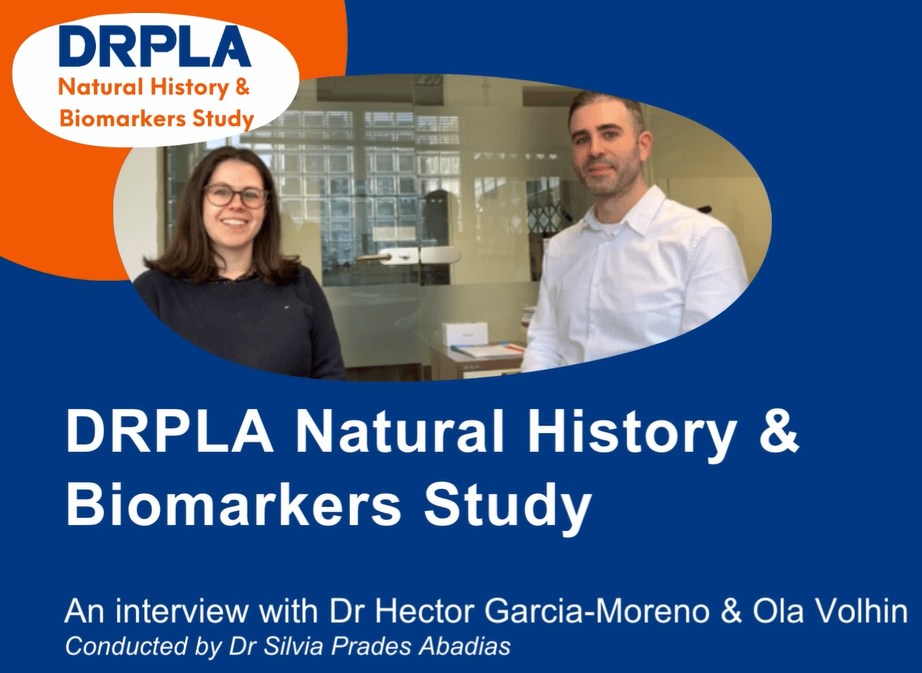We interviewed Dr Hector Garcia-Moreno and Ola Volhin about the DRPLA Natural History and Biomarkers Study, watch the full interview here. This is a global study with sites in London, New York and North Carolina, all of which are currently recruiting participants. The study also plans to open sites in Japan, where DRPLA is more prevalent. We also have an article about the study with the contact details for each site.
“There are no treatments for DRPLA now and the way to get there is through clinical trials. To do a clinical trial, it is very important to have quite a lot of information about that condition beforehand. For example, you need to know how the condition progresses, which is what we call natural history. One of the aims of this project is to prepare for a clinical trial”.
“This type of study is very important. In genetic ataxias we are running against time, but we need to acquire all this information before we can successfully enter a clinical trial”.
Hector Garcia-Moreno, MD. Neurologist and Research-Fellow at University College London.
“We are looking for participants of any age that carry the mutation that causes DRPLA but also, we are looking for participants who do not have DRPLA to act as controls and this can be a spouse or a family member. This will allow us to compare how individuals with DRPLA compare with those that do not have DRPLA”.
“We carry out several different types of assessments, like general health, clinical history, physical examinations. We hope to take biosamples and do a brain MRI. Although we encourage participants to do as much as they can, if there is something they do not feel comfortable doing then we can discuss this on a case-by-case basis”.
Ola Volhin. Research Assistant at University College London.

